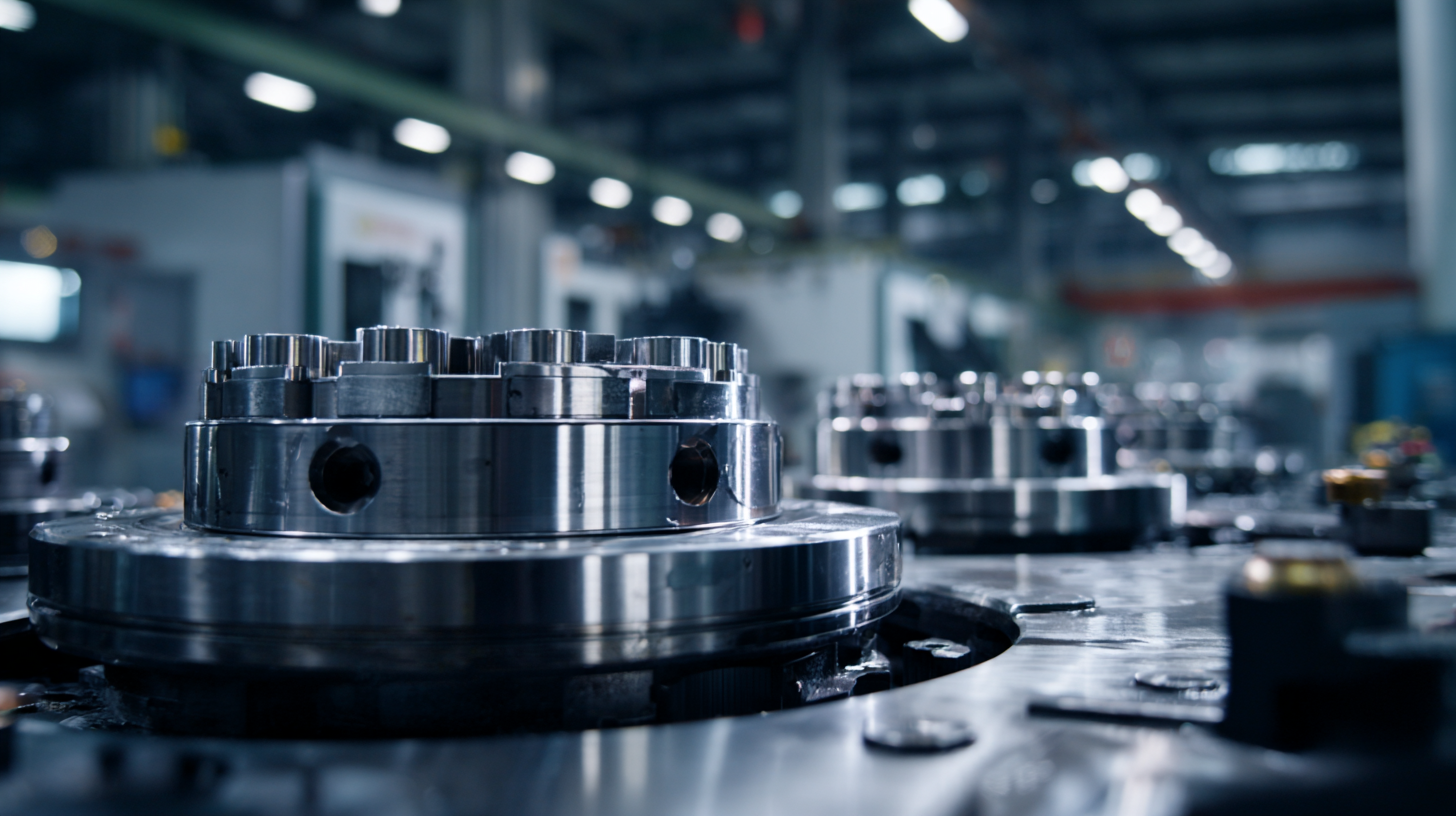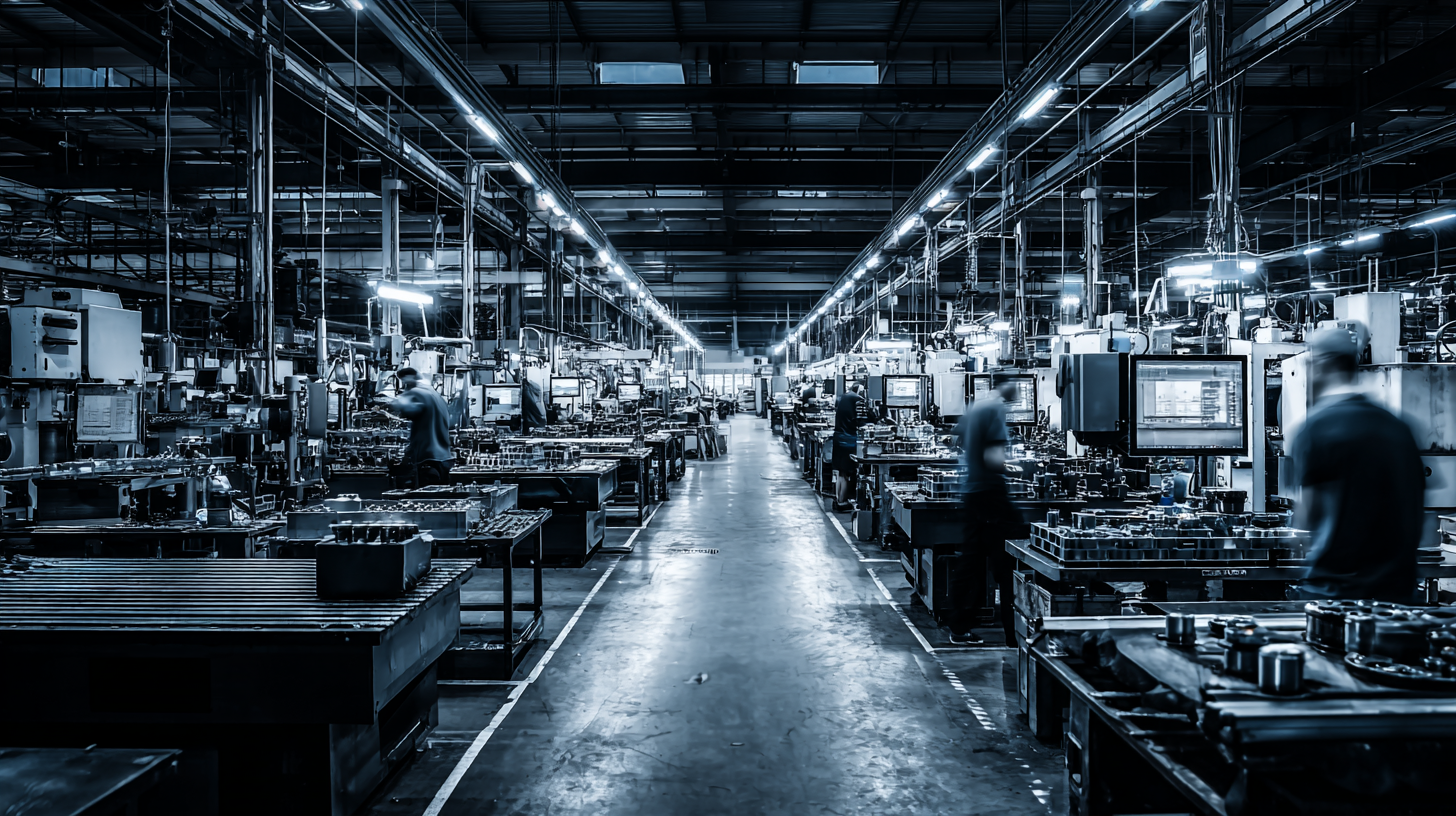
Top 5 Best Manufacturers: Insights and Examples from Leading Industries
In the rapidly evolving landscape of technology, the role of manufacturers has never been more pivotal. As we look ahead to the major advancements expected by 2025, understanding the trends shaping these industries is essential for stakeholders at all levels. This blog post delves into the top five best manufacturers that are leading the charge in innovation and efficiency. By examining insights and real-world examples from various sectors, we aim to provide a comprehensive overview of how these manufacturers are not just adapting to change but actively driving it. Whether you're an investor, a business owner, or simply a technology enthusiast, discovering how these leading figures in manufacturing are navigating the complexities of modern demands will offer valuable perspectives on future opportunities and challenges.

The Role of Innovation in Shaping Future Manufacturing Practices
In today's rapidly evolving manufacturing landscape, innovation plays a pivotal role in shaping practices and driving efficiency. According to the McKinsey Global Institute, if manufacturers adopt advanced technologies, they could potentially boost productivity by 20 to 25 percent by 2025. This shift towards digitalization includes the integration of IoT devices, AI, and robotics, which enable real-time data analysis and enhanced automation. For instance, the implementation of smart factories allows manufacturers to optimize supply chain management, significantly reducing downtime and waste.
Moreover, a recent report from Deloitte indicates that 79% of manufacturers believe that the adoption of advanced manufacturing technologies is critical to their future success. Companies that invest in R&D are not only improving their operational efficiencies but also fostering a culture of continuous improvement. For example, Siemens has reported that its digitalization initiatives have led to a 30% decrease in production time for certain product lines, showcasing how innovative strategies can considerably improve competitive advantage in the industry. Emphasizing innovation in manufacturing is no longer an optional strategy; it is essential for survival and growth in an increasingly competitive market.

Sustainability Trends: How Leading Manufacturers Are Adapting
As sustainability trends continue to reshape the landscape of manufacturing, leading companies are increasingly adapting their strategies to not only meet regulatory demands but also to align with evolving consumer preferences. The drive for sustainability is becoming critical as consumers, particularly the Gen Z demographic, prioritize health, convenience, and environmental responsibility in their purchasing decisions. This shift compels manufacturers to innovate continuously, integrating sustainable practices into their operations and product offerings.
Tips for manufacturers looking to enhance their sustainability efforts include adopting Industry 4.0 technologies such as artificial intelligence and the Internet of Things. These tools can streamline production processes and improve resource efficiency, significantly reducing waste and emissions. Additionally, understanding material risks is paramount; integrating ESG (Environmental, Social, and Governance) aspects into decision-making can help companies navigate potential challenges while capitalizing on opportunities.
Furthermore, fostering a culture of eco-innovation within the organization can drive significant change. Engaging employees at all levels in sustainability initiatives can yield creative solutions that enhance product offerings and reduce environmental impact. By making sustainability a core part of their business strategy, manufacturers can not only meet the demands of today's consumers but also position themselves as leaders in the industry for years to come.
Automation and AI: The Future Workforce in Manufacturing Industries
The manufacturing industry is witnessing a transformative shift with the integration of automation and artificial intelligence (AI). According to a report by the McKinsey Global Institute, up to 60% of all occupations could see 30% of their tasks automated by the year 2030. This potential for automation underscores the necessity for manufacturers to adapt their workforces to embrace these technological advancements. Companies that leverage AI technologies are not only enhancing operational efficiencies but also driving innovation in product development and supply chain management.
Leading manufacturers, such as Siemens and General Electric, have already begun investing heavily in AI and automation to streamline their production processes. For instance, Siemens reported a 25% increase in efficiency at its Amberg facility, where AI is used for predictive maintenance and quality assurance. Additionally, a Deloitte study indicates that 79% of manufacturers believe that integrating AI into their systems will be essential for future growth. As the workforce becomes increasingly reliant on technology, the demand for skilled workers capable of managing and interpreting AI-generated data will rise, marking a significant shift in workforce requirements within the manufacturing sector.
Top 5 Best Manufacturers: Insights and Examples from Leading Industries - Automation and AI: The Future Workforce in Manufacturing Industries
| Rank | Industry | Automation Technology | AI Integration | Workforce Impact |
|---|---|---|---|---|
| 1 | Automotive | Robotic Assembly Lines | Predictive Maintenance | Reduced Labor Costs |
| 2 | Electronics | Automated Testing Equipment | Quality Control Algorithms | Increased Productivity |
| 3 | Pharmaceuticals | Batch Processing Robots | Drug Development Analytics | Enhanced Research Efficiency |
| 4 | Food and Beverage | Automated Packaging Systems | Supply Chain Optimization | Improved Safety Standards |
| 5 | Aerospace | 3D Printing Technology | Flight Simulation Programs | Higher Overall Efficiency |
Case Studies: Success Stories from Top Manufacturers in Different Sectors
In today's competitive landscape, understanding what makes certain manufacturers stand out can provide valuable insights for businesses across various sectors. Let's explore some success stories from top manufacturers that illustrate best practices and innovative approaches. For instance, a leading automotive manufacturer has drastically reduced production time by implementing lean manufacturing principles, resulting in significant cost savings and improved product quality. This not only enhances operational efficiency but also fosters a culture of continuous improvement within the organization.
Tip: To implement similar strategies in your organization, focus on identifying waste in your processes and encourage team members to contribute ideas for improvements.
Another noteworthy example comes from the electronics industry, where a manufacturer has embraced automation and artificial intelligence to streamline assembly lines. By investing in smart technology, this company has increased its production capacity while maintaining high standards of quality control. This proactive approach allows them to respond swiftly to market demands and enhances customer satisfaction.
Tip: Consider investing in technology to analyze your production data, as it can provide insights that lead to better decision-making and more agile operations.

Emerging Technologies: What to Expect in the Next Decade of Manufacturing
As we look towards the next decade of manufacturing, the emergence of cutting-edge technologies promises to reshape industries in ways we can barely imagine. Advanced automation, artificial intelligence, and the Internet of Things (IoT) are set to become staples in manufacturing environments, enhancing efficiency and productivity. Companies that embrace these innovations early will likely gain a competitive edge, adapting their processes to meet the evolving market demands.
Tip: To prepare for these changes, businesses should invest in workforce training programs focused on these technologies. Upskilling employees not only enhances their proficiency but also fosters a culture of adaptability within the organization.
Furthermore, sustainability will play a pivotal role in manufacturing advancements. With heightened awareness of environmental concerns, manufacturers will increasingly prioritize eco-friendly practices. This includes utilizing renewable energy sources, reducing waste, and adopting circular economy principles, which will ensure that the industry remains resilient and responsible.
Tip: Implementing a robust sustainability strategy can open up new market opportunities, attracting environmentally conscious consumers. Companies should consider partnering with green tech firms to innovate their practices and enhance their reputation in the market.
Top 5 Best Manufacturers: Insights and Examples from Leading Industries
This chart illustrates the projected growth in adoption of emerging technologies across various manufacturing sectors over the next decade. The focus is on four key technologies: Automation, AI and Machine Learning, IoT (Internet of Things), and 3D Printing.
